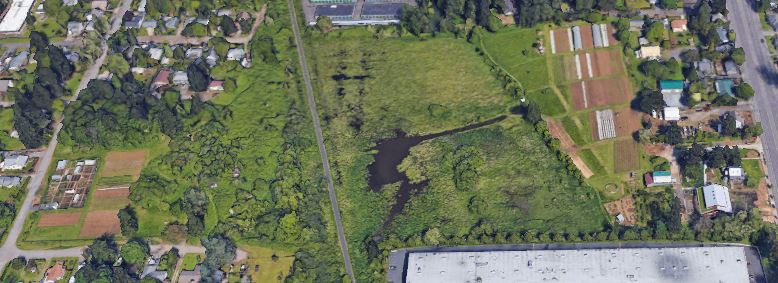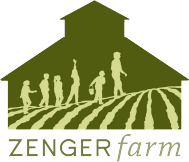
 Zenger Farm is certified organic, but we strive to adopt sustainable farming practices that go beyond organic certification. Organic certification primarily means that a farm does not use synthetic products but it still allows farmers to use organic pesticides and herbicides. At Zenger Farm, we use farming practices that protect the environment, public health, our community and provide for the welfare of the animals on the farm.
Zenger Farm is certified organic, but we strive to adopt sustainable farming practices that go beyond organic certification. Organic certification primarily means that a farm does not use synthetic products but it still allows farmers to use organic pesticides and herbicides. At Zenger Farm, we use farming practices that protect the environment, public health, our community and provide for the welfare of the animals on the farm.
Overview
- Crop Rotation: We rotate our vegetable crops to break pest insect life cycles and to prevent plants from depleting our soil nutrients.
- Cover Cropping: While our fields are not growing vegetables, we plant other crops to prevent soil erosion, increase soil organic matter, to retain and add nitrogen for soil fertility, and to feed our poultry.
- Native Hedgerow: Near the edges of our fields and property, we grow native plants and plants that provide year-round food and habitat for pollinators and other beneficial insects.
- Pest Management:
- Floating Row Cover: We cover vulnerable crops with a thin fabric that keeps out insects but lets in sun and water.
- Fencing: We use mobile fencing to protect our crops from geese who live or visit our wetland.
- Beneficial Insect Plantings: We grow small patches of flowers scattered throughout our farm fields to provide food and habitat for a strong population of beneficial insects.
- Water Conservation: We use drip irrigation and timers to minimize evaporation and apply only the water that our plants need.
- Low Carbon Footprint: We strive to minimize the use of petroleum products. Our tractor runs off biodiesel made from used cooking oil, we never deliver produce beyond ten miles from the farm and we use as little plastic as possible.
- Rotating Livestock: Our flock of laying hens live in a mobile coop with mobile fencing that gives them plenty of room to roam. We move them around our farm so that they can have eat insects, eat our leftover crops and fertilize our soil.
Products used on the farm
We promise to be transparent about our farming practices. Here is a complete list of every product we have applied to our fields, crops, produce and livestock since 2010 and why we use it:
- Feather Meal: A soil amendment made from ground-up poultry feathers that provides nitrogen for soil fertility.
- Lime: Ground-up limestone helps to balance our acidic soil, and makes our vegetables more nutritious and rich in calcium and magnesium, important nutrients for those who consume our produce.
- Poultry Feed: Our poultry feed is made from locally sourced grains.
- Potting Soil: Our potting soil is used to raise our plants in the greenhouse before transplant. Ours is a mix of earthworm castings and peat moss.
- Fish Emulsion: We spray ground-up fish on our plants to help with their fertility requirements at planting time, and to make them smell good.
- Crushed Oyster Shells: These provide calcium to our chickens and plants.
- Borax: We spray a soluble form of borax (found in your home, in your laundry detergent) for crops that require extra boron to be healthy— like broccoli and beets.
- Bone meal: When our fields are deficient in phosphorus, we apply bone meal, which is prepared from waste from the meat industry, specifically discarded skeletons.
- Trace minerals: We apply a thin layer of volcanic ash when our soils become depleted of certain trace minerals, like copper or manganese.
- Gypsum: This mineral helps to provide sulfur, which is important for a plant’s immune system. Since we don’t use herbicides or pesticides, sulfur helps our plants to naturally resist pest and weed pressure without the use of chemicals.

